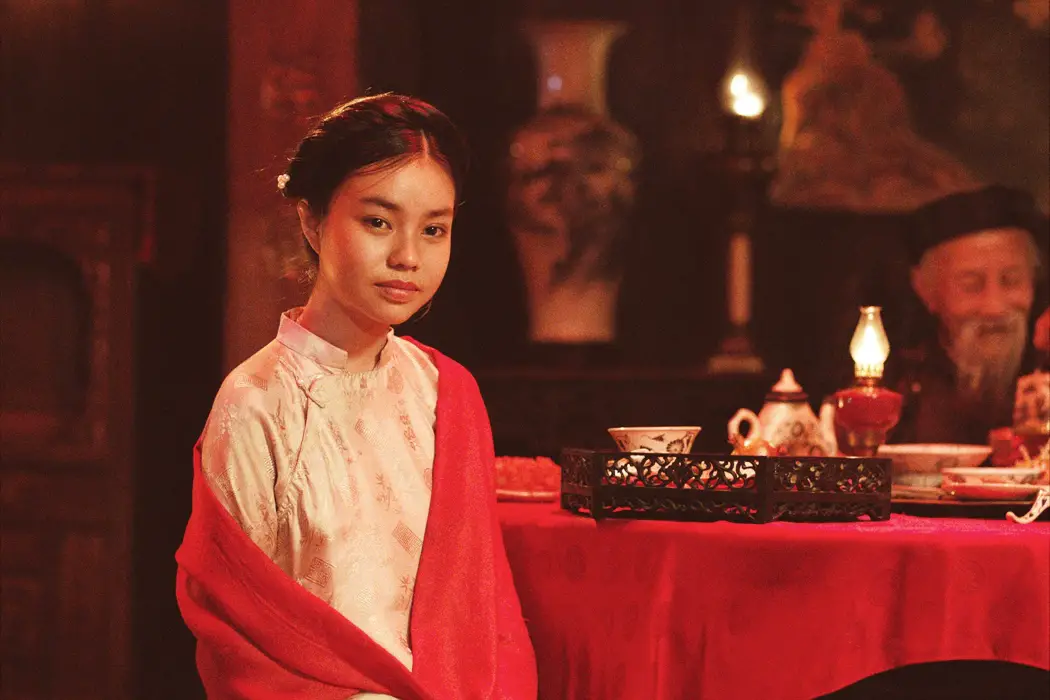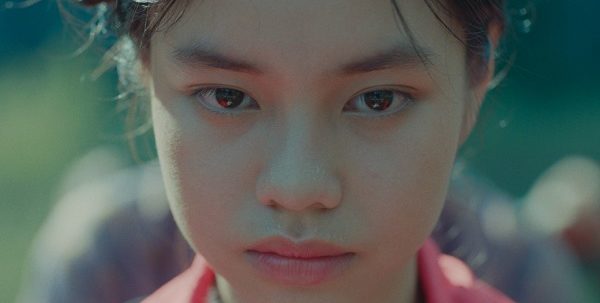THE THIRD WIFE: A Beautiful World Suffocated By Patriarchy

Janet is a writer based in Salt Lake City. A…
The Third Wife invites us into a broken world of arranged marriage and patriarchy in 19th-century Vietnam. In her impressive feature film debut, writer and director Ash Mayfair doesn’t parade us with profound tragedy and hardship; rather, she takes difficult subject matters and embellishes them with tranquil shots and dialogue. These effects craft a paradoxical world that is worth immersing in.
Although Mayfair tends to get a bit too poetic when crafting her scenes, she manages to create a harrowing tale of a teenager who learns of the very few options and possibilities available in her life. It gives an introspective look at gender roles – roles that are carried with suppressed emotions and strict rules. What we have is a profound sense of grief that permeates through the characters. It’s a small world, yet it resonates with us, because it conveys issues that in fact, still exist today.
Dealing With Marriage and Status At 14
The film opens with a close-up shot of May (Nguyen Phuong Tra My). She’s 14-years-old and on her way to marry a wealthy landowner, Hung (Long Le Vu). As the title of the film indicates, she’ll be the third wife in the household. The two senior wives, Ha (Tran Nu Yen Khe) and Xuan (Mai Thu Huong Maya) welcome her. They school and guide her with sisterly affection.

The hope is that May will be able to provide a son for the family – something that will create a solid status for herself. It’s really the only thing that will define her and her fate. Xuan, who has three daughters, holds a lower status than Ha, who has a son. As May watches how status is manifested in the dynamics that runs through their household, she quickly hopes and prays for a boy when she becomes pregnant herself.
Navigating from the beginning of May’s marriage to the end of her pregnancy, The Third Wife is like a coming-of-age story, except there’s no coming of age. In her world, she is of age and expected to be a mother. Inside, she is still a child and throughout her pregnancy, not only does May learn what it means to be a woman of the house, but what is expected of her.
Imprisoned By Productivity
May, Xuan, and Ha’s lives are tragically contradicting and toxic. They are expected to provide in a way that they have no control over, yet it’s something – the only thing really – that defines them. As her belly grows bigger, May realizes that she’s trapped by her own productivity. The gender of her baby will essentially determine her path.
As her social life primarily revolves around the women in the house, May witnesses an affair, loss, and her own sexual awakening. There’s an interesting solidarity along with quiet rivalry that co-exist among the wives. Through them, May learns the searing consequences of being a woman in her society.

These consequences are manifested through tough circumstances that she sees. She observes a woman who is subjected to higher ramifications when her and her partner are punished for an extramarital pregnancy. May also witnesses a new bride being punished for an unconsummated marriage which the groom was responsible for. And the way this fleshes out unfortunately coincides with the birth of her child.
Mayfair rarely focuses on May and Hung. And to be honest, there really isn’t anything in their relationship to divulge. As her purpose is to bear a son and fulfill Hung’s sexual pleasures, Mayfair depicts it exactly as such. There’s no dramatic deflowering or any genuine depth to their relationship that’s shown. It’s all a very detached and ritualistic system and Mayfair sticks with this.
Crafting Paradise In Hell
Surrounded by beautiful nature, May’s marriage and home lies by the valley. Mayfair takes full advantage of this, crafting a beautiful world full of wealth and productivity, suffocated by patriarchal rules and systems. We often see May basking in her privileged life, relaxing and picnicking during her downtime. But when the film sinks beneath the surface, we realize it’s a very small world with little to no options.
There are moments of frustration and tears, but this film isn’t about the spectacle of trauma. Conversations are kept quiet and even-tempered. Mayfair embeds the day-to-day events with subtle realizations that allows room for us to truly feel the gravity of the situation by the end.
Editing And Camera Methods Frame A Paradoxical And Grim World
It’s a rather bleak look at how the women are pretty much like prisoners within the confines of few men. Yet, Mayfair wraps this strict world with beautiful cinematography. It’s soft hues and continuous use of focus shots makes the world ironically look like paradise.

Mayfair fills her scenes with frequent cuts to nature, whether it be silkworms, the river, or trees. They poetically provide the passing of time along with the eroticism that May experiences. These scenes often feel a bit too forward and superfluous. And overlaying these with the constant focus shots and soft light makes the film feel overly poetic at times.
Regardless, the film manages to convey and carry evocative feelings of loss throughout its journey. The characters suppress their desires and feelings in order to remain aligned with the subjugation that confines them. May slowly and painfully starts to realize this throughout her pregnancy and even experiences her own loss, as she grows a deep affection for Xuan.
The Third Wife: Conclusion
Lead actress My carries a captivating performance of someone who is far too young to carry the weight of her circumstances. She illustrates how women often bear the consequences of situations that men are equally involved in. There’s a quiet sense of grief and cruelty that floats through their lives. But they carry on in order to uphold the cycle – a cycle that both protects and destroys them.
The film ends on a really powerful and heartbreaking note. Mayfair lands on both desperate and determined feelings that leaves us gasping. The last two scenes are a reminder of the injustices many women still suffer from in our world today.
Have you seen The Third Wife? Please share your thoughts by commenting below!
The Third Wife was released in U.S. theaters on May 15, 2019. For international release dates, see here.
Does content like this matter to you?
Become a Member and support film journalism. Unlock access to all of Film Inquiry`s great articles. Join a community of like-minded readers who are passionate about cinema - get access to our private members Network, give back to independent filmmakers, and more.
Janet is a writer based in Salt Lake City. A strong advocate for underrepresented voices, she believes cinema is a transformative medium that challenges assumptions and creates diverse conversations.













